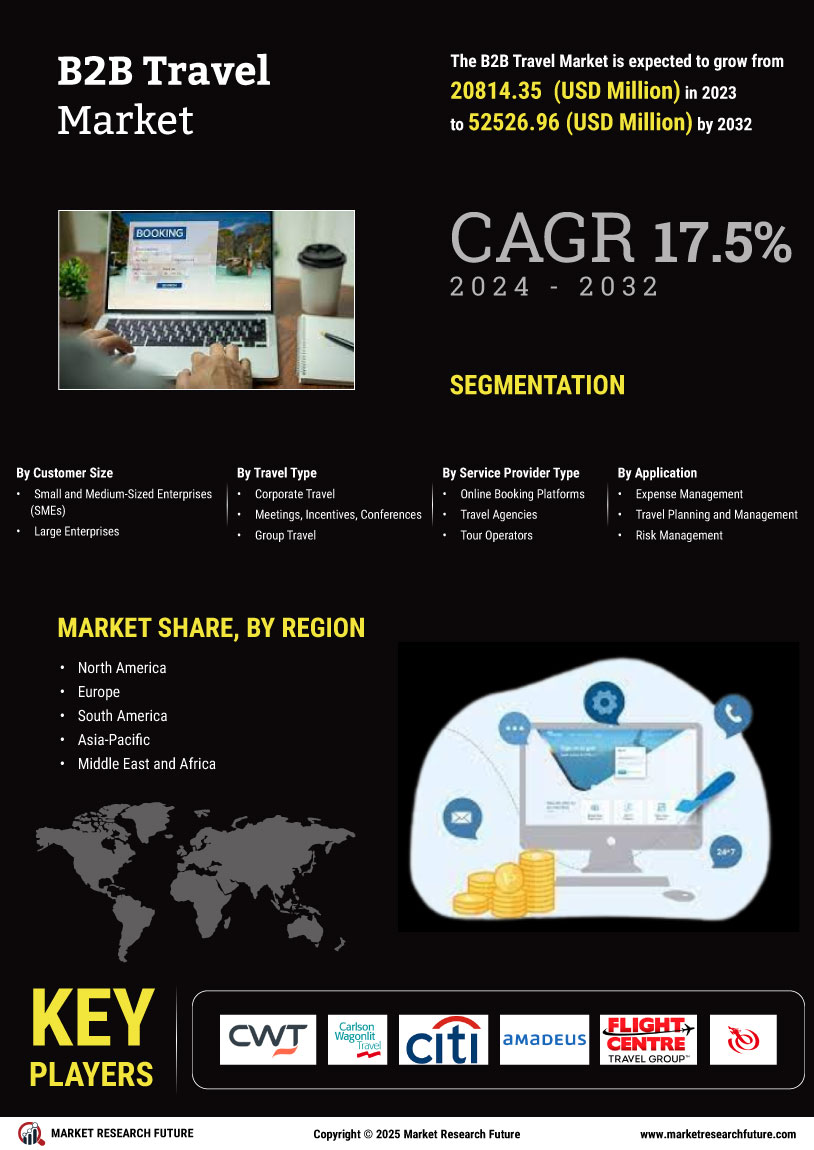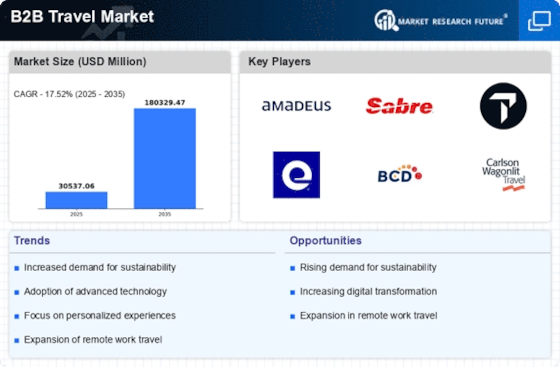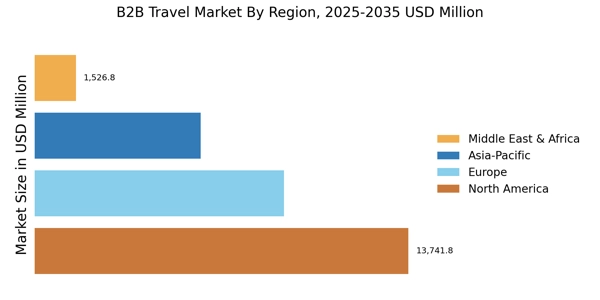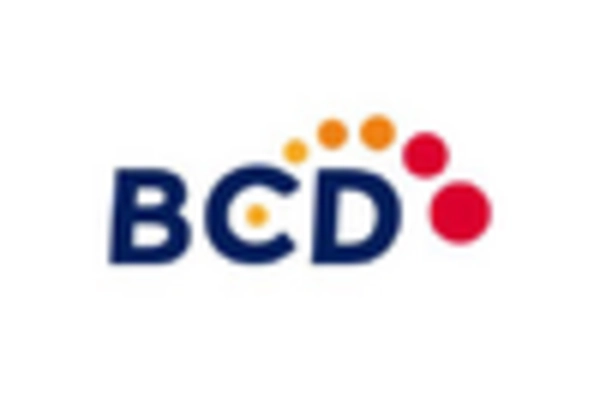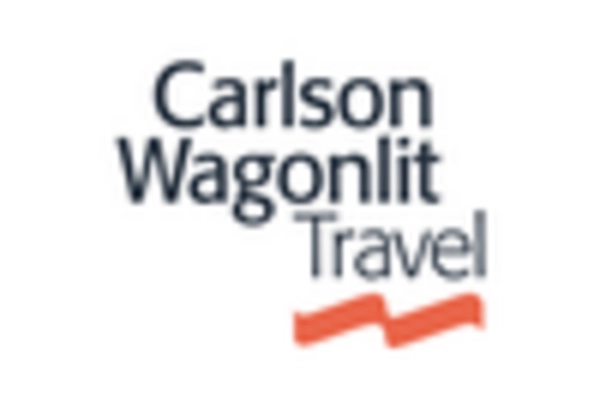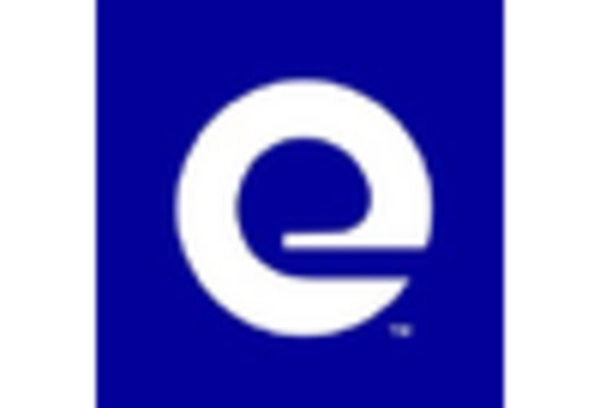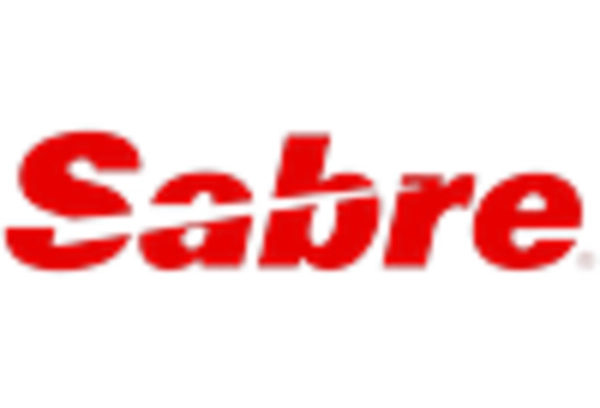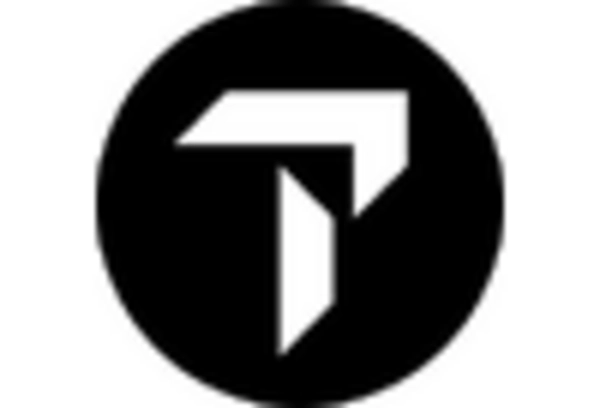North America : Market Leader in B2B Travel Market
North America remains the largest market for B2B travel, accounting for approximately 45% of the global share. Key growth drivers include a robust economy, increasing corporate travel budgets, and advancements in travel technology. Regulatory support, such as tax incentives for business travel, further fuels demand. The second largest market, Europe, holds around 30% of the global share, showcasing significant growth potential in the region.
The competitive landscape in North America is characterized by the presence of major players like American Express Global Business Travel, Sabre Corporation, and Expedia Group. These companies leverage technology to enhance travel management solutions, catering to the evolving needs of businesses. The U.S. and Canada are the leading countries, with a strong focus on innovation and customer service, ensuring a dynamic market environment.
Europe : Emerging Trends in Travel Management
Europe is witnessing a resurgence in the B2B travel market, driven by increasing business activities and a shift towards sustainable travel practices. The region holds approximately 30% of the global market share, with countries like Germany and the UK leading the charge. Regulatory changes aimed at promoting eco-friendly travel options are catalyzing this growth, alongside a rise in corporate travel budgets as businesses adapt to post-pandemic realities.
Leading countries in Europe include Germany, the UK, and France, where companies are increasingly adopting advanced travel management solutions. Key players such as BCD Travel and Amadeus IT Group are at the forefront, offering innovative services tailored to corporate clients. The competitive landscape is evolving, with a focus on sustainability and technology integration, positioning Europe as a dynamic player in the global B2B travel market.
Asia-Pacific : Rapid Growth in Travel Demand
Asia-Pacific is rapidly emerging as a powerhouse in the B2B travel market, driven by economic growth and increasing business activities. The region holds approximately 20% of the global market share, with countries like China and India leading the way. Factors such as urbanization, a growing middle class, and advancements in digital payment systems are fueling demand for corporate travel services, making it a key area for investment and development.
China and India are the leading countries in this region, with a significant presence of key players like Travelport and CTM. The competitive landscape is characterized by a mix of local and international companies, all vying for market share. As businesses expand their operations, the demand for efficient travel management solutions is expected to rise, further solidifying Asia-Pacific's position in the global B2B travel market.
Middle East and Africa : Untapped Potential in Travel Sector
The Middle East and Africa region presents untapped potential in the B2B travel market, with a market share of approximately 5%. Key growth drivers include increasing foreign investments, a rise in business tourism, and government initiatives aimed at enhancing travel infrastructure. Countries like the UAE and South Africa are leading the way, with significant investments in tourism and travel services, positioning the region for future growth.
The competitive landscape is evolving, with local players and international companies like Carlson Wagonlit Travel expanding their presence. The region's focus on diversifying its economy and promoting tourism is attracting attention from global businesses. As the market matures, the demand for sophisticated travel management solutions is expected to increase, creating opportunities for growth in the B2B travel sector.
